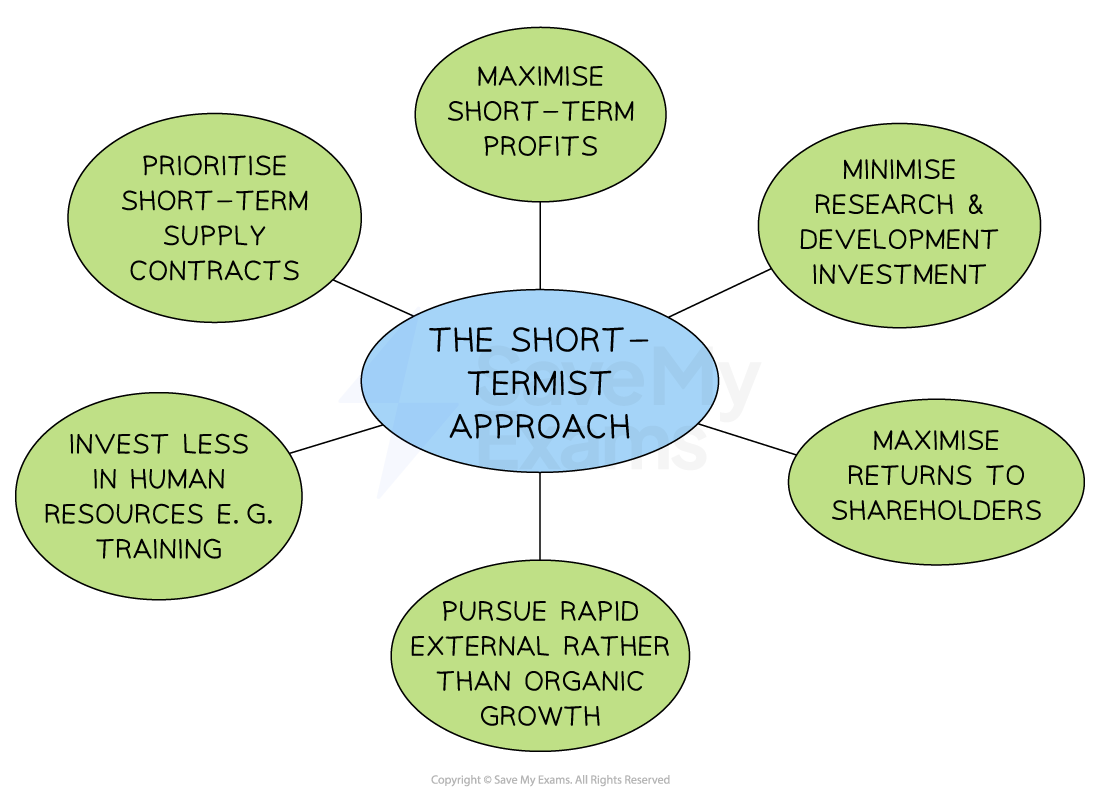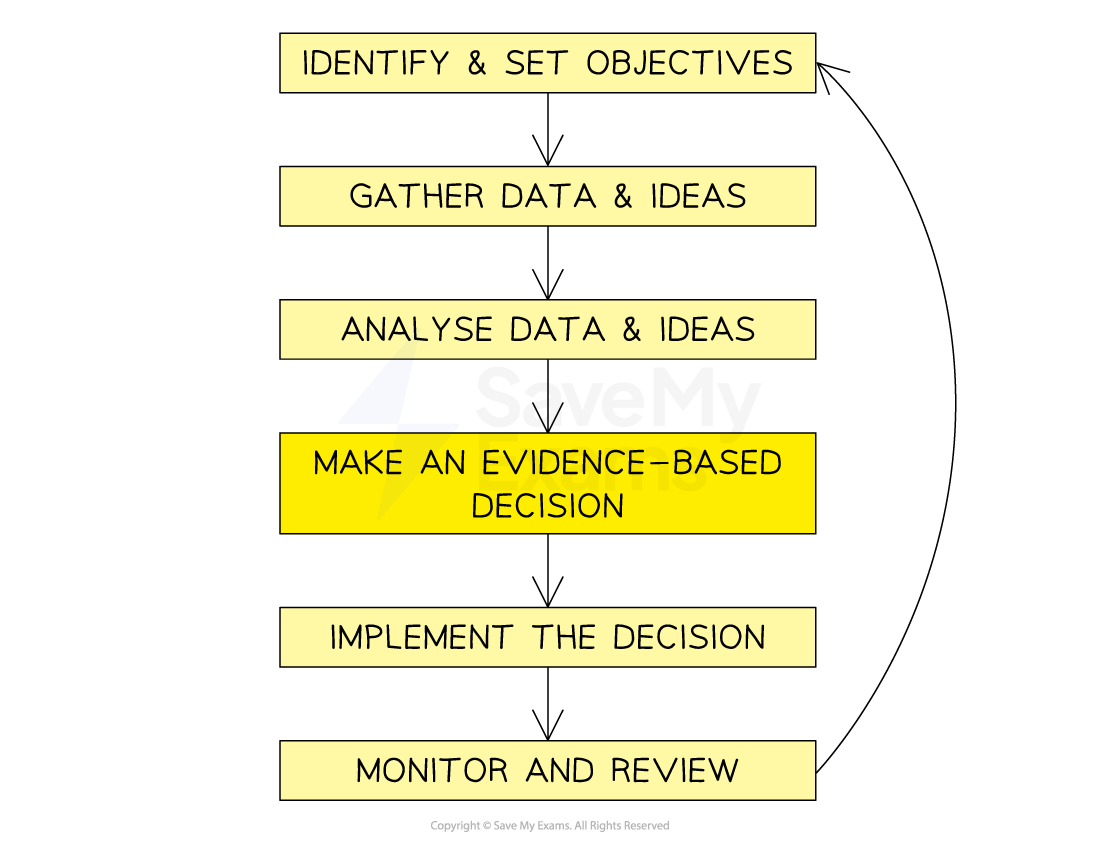Corporate Influences (Edexcel A Level Business): Revision Note
Exam code: 9BS0
Corporate timescales: short-termism versus long-termism
Business decisions can have long-term and short-term implications
Long-term decisions are likely to affect the long-term mission and vision of the business over a period of anything up to ten years
Short-term decisions are more likely to impact objectives and tactics over the next few years at most
Many businesses focus on decision-making for the short term
This is especially influenced by pay structures, e.g. when executives' pay is linked to short-term success, such as an increase in the share price
The short-termist approach

Businesses that adopt a short-termist approach may face a range of problems:
Loss of profitability and competitive edge as lucrative long-term opportunities are ignored in favour of short-term priorities
The need to produce and analyse very regular financial reports means that managers lack time to consider longer-term corporate strategic direction
Reliance on short-term contracts with suppliers and workers is likely to lead to higher than necessary costs, as benefits such as bulk buying discounts cannot be achieved
It is argued that short-termism is an entrenched feature in British businesses, and some commentators consider that it is a key reason for sluggish productivity and a lack of willingness to invest in research, training and skills
Some businesses are more likely to engage in those activities that will allow them to take advantage of opportunities that improve productivity and provide a competitive edge in the future
This long-term approach may include a business:
Conducting ongoing investment in research and development, innovation and new product development
Adopting a long-term outlook with less emphasis on frequent financial reporting
Valuing and investing significant resources into the recruitment, training and retention of staff
Establishing and nurturing meaningful and lasting relationships with suppliers
Evidence-based versus subjective decision-making
Evidence-based decision-making involves taking a systematic and fact-based approach when determining objectives, strategy and tactics
The evidence-based approach

First, a business identifies the measurable objective it wants to achieve and determines the criteria against which success will be measured
Data is then gathered and analysed to consider the range of available decisions
Internal data may be gathered from sales records and market research
External market data and economic forecasts are also often used
The appropriate evidence-based strategic and tactical decision is made and communicated to those required to carry out the range of tasks involved
The decision is implemented, carefully monitored and reviewed
The outcome of the decision can be used to inform future decision-making
Subjective decision-making is guided principally by the personal opinions and experiences of key decision-makers
Subjective decision-making is often more risky than an evidence-based approach, but there are some circumstances in which it may be more appropriate
Situations in which subjective decision-making may be appropriate
Situation | Explanation |
|---|---|
|
|
|
|
|
|
|
|
Examiner Tips and Tricks
A business’s approach to decision-making can provide an excellent basis for analysis and evaluation.
Look out for clues in the case study that identify whether the business takes an evidence-based or subjective approach and weigh up how this may affect both the quality of the decision and the likelihood of the business achieving its objective.
Explore the skills, experience and characteristics of the key decision-makers and state your concerns.
Consider whether their approach is appropriate, given the timescales available and the level of risk involved in the decision.
Evaluate the sources of information used to make decisions and make a judgement about whether it is sufficient.

Unlock more, it's free!
Did this page help you?